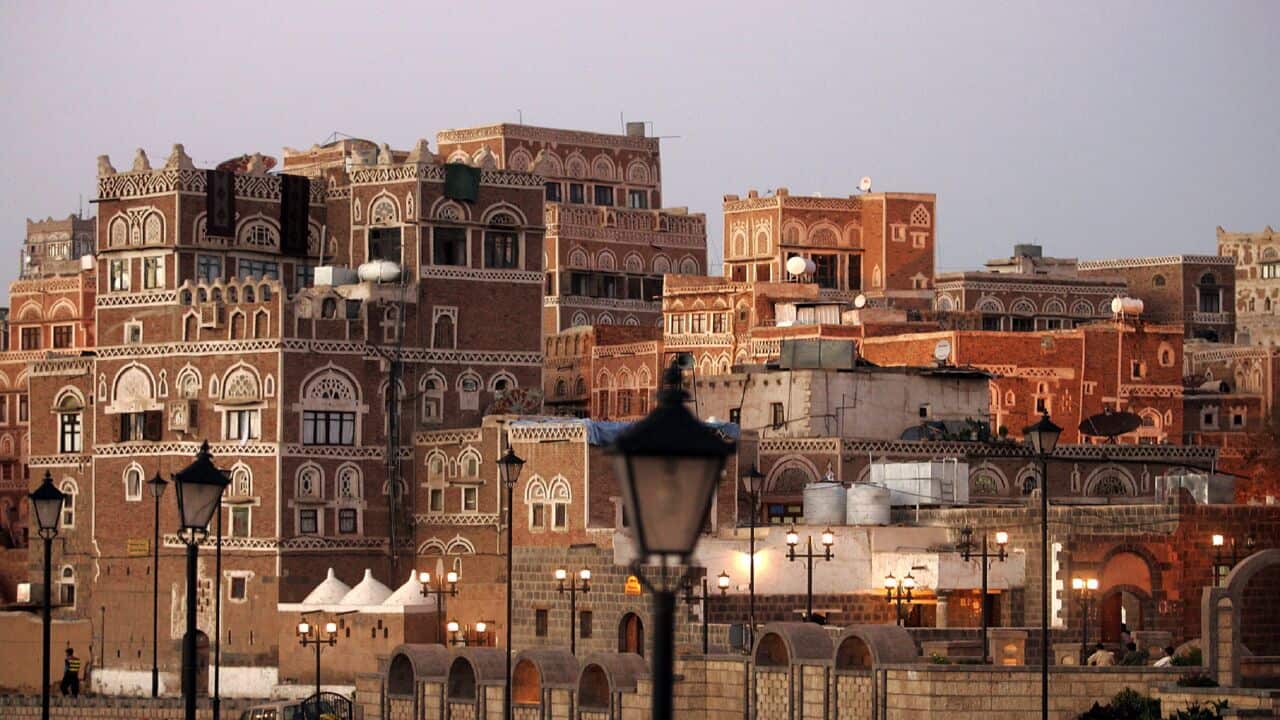Yemen is a country of rich history, beautiful landscapes, and an open cultural heritage, while in the last years, it has been largely defined by a civil war which started in 2015. It has thrown the country into a humanitarian crisis and created an environment of political and social instability. Though facing all these challenges and continuous social conflicts, some foreign investors have shown interest in real estate investment in Yemen, keeping in mind the long-term opportunities it may bring along, especially in areas like urban development, agriculture, and commercial undertakings.
The very common question that people might consider right away while considering any investment opportunity in Yemen is: Can foreigners buy property in Yemen? It is, therefore, the most crucial factor to be put into consideration by every individual who opts to venture into the country’s real estate market. Its political and economic environment has time and again encumbered ownership of real estate in Yemen for both local and foreign buyers. Nevertheless, there are also opportunities to be found within the commercial and urban sectors of the country’s real estate market.
In this article, we go in-depth into the legal framework with regard to property ownership by foreigners, challenges of investing in real estate in Yemen, and what potential investors should consider before making a move.
Can Foreigners Buy Property in Yemen?
Theoretically speaking, foreigners can own property in Yemen, but it is fraught with a lot of legal and practical problems that need to be considered. The property laws of Yemen combine elements of Sharia with the civil law system and are quite complex. The major influence on these laws is the effect of political instability in the country.
The possibility for foreigners to buy a property depends both on national legislation and regional preconditions, especially because Yemen has suffered under years of conflict that crippled governance structures.
1. Legal Framework for Foreign Ownership in Yemen
Property laws in Yemen have witnessed significant evolution over the years, something that has further been propagated by the outbreak of the civil war. Ordinarily, Yemen allows property ownership by foreigners, albeit with stringent regulations and limitations. The current state of affairs makes this process even more complicated.
Foreign Ownership of Land in Yemen
The ownership of lands has been restricted by the government of Yemen, as pertains to foreign nationals. Generally speaking, the ownership of agricultural lands by aliens is absolutely prohibited. This is to ensure that such valuable agricultural lands are preserved and remain in the hands of native citizens. However, under certain circumstances, foreigners may buy urban and residential property, specifically for business or investment purposes, whenever the requirements under the law are observed.
Residential property investment by foreign buyers requires them to go through certain rules usually targeted at the type of property being bought. For instance, sometimes foreigners are allowed to buy property not in absolute ownership, but as leasehold agreements. That would mean a foreigner is allowed to lease property for a long period, normally 50 years or more, but not have complete ownership rights over the land itself.
Foreign Ownership through Joint Ventures
One of the most important practical ways through which foreign investors have gained access to the Yemeni property market is through joint ventures or partnerships with Yemeni nationals. Without violating the restrictions to land ownership, foreign nationals are allowed to pool their efforts together with local Yemeni businesses and individuals to get through the intricacies of the legal system and own property in Yemen.
Under these arrangements, the foreign partner may hold either a minority or majority interest in developing or owning the property. In fact, this is prevalent, especially in commercial and industrial estate development.
Legal Considerations for Foreign Buyers
Like any other real estate investment, a foreigner interested in investing in property in Yemen ought to be informed on the legal implications of such an investment. In addition to the restrictions of foreign ownership, the legal system guiding real estate transactions in Yemen is not only complex but varies depending on the region in which the transaction is to take place. For instance, the political situation in Yemen has caused unevenness in the application of property rights in certain areas.
Legal Documentation: It is always highly risky for a foreign investor to purchase property or enter into a real estate agreement in Yemen, and it is required that all legal documentation-including the property deed, registration documents, and official permits-must be present. Without effective centralized government control over most of the country, these legal documents can be extremely difficult and time-consuming to obtain, especially from areas under the various other factions in control.
– Land Registration: In Yemen, the ownership of land is still recorded at the level of local registries. These are undependable and in some areas there is no record-keeping at all. Thus, due diligence on the part of a foreign investor is particularly warranted before concluding a deal in order not to face any possible disputes over land ownership or house possession rights.
2. Real Estate Opportunities for Foreign Investors
Nevertheless, in spite of these challenges, various sectors of the property market may be appealing for foreign investment, especially in major cities such as Sanaa, Aden, and Taiz. Although less developed compared to other regional countries, this likewise implies that there may be a long-term growth potential.
Residential Properties
In the residential sector, foreigners may get a chance to invest in properties in urban cities, including apartment buildings or villas. However, as mentioned earlier, most of the residential property dealings with a foreigner will be arranged as long-term leasehold rather than outright ownership. Also, the chance for residential development might be available in some cities like Sanaa, which is usually cramped due to the ongoing battle situations within the country.
Commercial Properties
Commercial real estate in Yemen offers more investment opportunities than residential. The most active sectors would be retail, office, and hospitality. Foreign investors might be allowed to buy or rent commercial property in order to develop businesses like hotels, restaurants, or office buildings, especially in the cities of Aden and Sanaa, which are considered key economic and business hubs.
This is the sector that could see much scope for growth once the political situation in that country stabilizes and the country starts rebuilding its infrastructure.
Agricultural and Developmental Land
While direct foreign ownership of agricultural land is not permitted, foreign investors are permitted to adopt and invest in developmental projects; this can be in the form of agricultural partnerships or joint ventures with local parties. This would include land development projects involving the improvement of agriculture production, irrigation systems, or the creation of agricultural processing facilities.
Tourism and Hospitality Industry
Tourism in Yemen extends deep in time, represented in the numerous old cities, historical and civilizational sites spread over its territories, along with natural sceneries. In spite of those security challenges, strong potential still comes ahead in real estate investment in the hospitality sector. International hotel chains or investors may consider the development of high-star hotels or resorts in main tourist cities. The market depends directly on the general security situation in the country and its ability to reconstruct its infrastructure.
3. Challenges of Investing in Yemen
Investing in real estate in Yemen is not devoid of significant challenges, especially to foreigners. The following are some of the major challenges that investors need to be aware of before considering real estate transactions in the country:
Security Concerns
Yemen is a conflict zone, and this security concern is one of the big deterrents to foreign investors. Civil wars among its factions have, to date, caused instability in very many parts of the country and include Sanaa, Aden, and Taiz. The security situation varies greatly from one area to another, and foreign investors must assess the risks associated with their investment in specific regions.
Such conflict is so unpredictable that, besides the involvement of several regional powers, the future stability of the country can hardly be anticipated. The impact can also be reflected in terms of fluctuation in property values, their exploitations, difficulties in enforcing the rights of property, and completing transactions.
#### Legal and Bureaucratic Issues
The legal and bureaucratic situation in Yemen is puzzling and not clear in view of the dismemberment of the different structures of governance. There are problems of land title disputes, either lack of or incomplete formal registration of land in most areas, or inability to know how to work out the regulatory system at the local level. Property deals often take time to process, even in those areas where the government is in control.
Economic Instability
The war has made many casualties in the economy of Yemen, which suffers from very high inflation, currency devaluation, and unemployment. The Yemeni rial suddenly degraded in value, and this has made doing business transactions and maintaining real estate investment values increasingly difficult. Economic instability, coupled with a lack of robust infrastructure, makes it hard for investors to predict returns on real estate projects.
Limited Market Liquidity
The real estate market in Yemen is still in its relative infancy compared to other regional countries, and market liquidity remains limited. This factor renders it tough for foreign investors to sell properties or exit investments if there is such a need. Also, the fact that a secondary effective market for real estate does not exist, together with political risks, makes Yemen a very unfavorable environment for quick returns.
4. Frequently Asked Questions
Can foreigners buy land in Yemen?
It is generally prohibited for non-nationals to buy agricultural lands in Yemen but, depending on negotiations, they may have the opportunity to purchase residential and commercial properties in cities via a leasehold arrangement or through a joint venture with local business partners.
Is it safe to invest in property in Yemen?
Definitely, given the present conflict, security problems, and disorders in the economy, investment in Yemen is very risky. Any foreign investor should give due consideration to political and security conditions before he embarks on any property investment.
Can a foreigner buy property in Yemen through a company?
Yes, foreigners are allowed to invest in property through a local company or in partnership with a Yemeni partner or company. This structure is often used to circumvent restrictions on direct property ownership.
What Are the Risks of Buying Property in Yemen?
These are the major risks: security concerns, legal challenges, political instability, economic volatility, and a lack of market liquidity. Overcoming these challenges will be difficult for investors, who will need to undertake comprehensive due diligence and work closely with local experts.
#### Are there any incentives for foreign property investors in Yemen?
Yemen does offer some incentives for foreign investment, particularly in areas such as construction
and development. However, for most investors these are small compared to the security and political risks.
## Conclusion While foreigners can buy in Yemen, it is often complicated and filled with risks. Legal and bureaucratic barriers, security concerns, and-most of all-the country’s ongoing economic challenges make it a very difficult market for investment. Foreign investors in Yemen should carefully weigh the situation, seek local legal advice, and consider entry to the market via joint ventures or long-term lease agreements rather than direct ownership. While the real estate sector might promise a future generation of growth, Yemen currently is a high-risk destination for investment.










